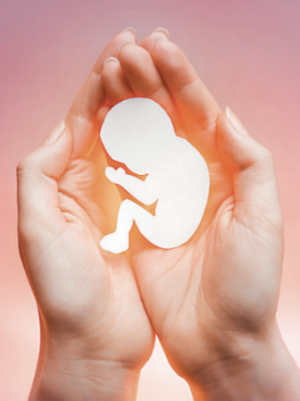National
Government reaches eight-point deal with Dr KC on 27th day of his hunger strike
Both sides signed the agreement late on Saturday to address most of the demands of the agitating doctor.
Binod Ghimire
The team negotiating on behalf of the fasting Dr Govinda KC had reached Singha Durbar at 9pm on Friday evening to hold conclusive talks with the government team, but the talks were over soon—without an agreement. Minister of Education Giriraj Mani Pokharel had apparently backtracked on the agreements reached the previous day.
The coordinator of the government team phoned the minister. There was no answer.
“It is the height of insensitivity from the government. It has become apparent that KC’s life doesn’t matter to the incumbent government,” said advocate Om Prakash Aryal, a member of KC’s talks team.
Saturday was the 27th day of the 63-year-old social crusader’s fast-unto-death.
According to Dr Subash Acharya of Tribhuvan University Teaching Hospital, who is attending KC, his health condition is very poor.
Late on Saturday, both sides signed an eight-point agreement. The agreement includes establishing government medical colleges in different provinces of the country, providing free health services at Bayalpata Hospital in Achham and increasing the PCR testing capacity, among others. According to the agreement, Dr KC will break his fast on Sunday morning.
The government’s disdain for KC’s demands was obvious from the fact that the government only formed a talks team led by Education Secretary Gopinath Mainali on Wednesday, the 24th day of his hunger strike that he started in Jumla on September 14. He had agreed to come to Kathmandu only if he would be allowed to continue his fast at Tribhuvan University Teaching Hospital. But police forcibly took him to the National Trauma Centre. Only after widespread criticism was he allowed to go to his preferred destination.
And it was again after voices were raised against government apathy that it formed a three-member talks team under Mainali that includes Dr Guna Raj Lohani, a joint-secretary at the Ministry of Health and Population, and Dr Dilip Sharma, director at the Medical Education Commission.
KC’s team is led by Dr Jiwan Kshetry, coordinator of the Solidarity for Dr KC Alliance. It has National Health Research Council chair Dr Anjani Kumar Jha and Dr Lochan Karki, chairperson of Nepal Medical Association, besides Aryal, as members.
Following the formation of the talks teams on Wednesday, the two sides had a 10-hour discussion on Thursday on KC’s six demands. These included developing a legal framework for appointing the senior-most doctor from the Institute of Medicine as its dean, investigating the properties of the incumbent and former commissioners from the Commission for Investigation of Abuse of Authority, starting MBBS classes at Karnali Institute of Health Sciences immediately, establishing one government medical college each in Sudurpaschim Province, Province 2, Gandaki Province and Province 1 and an amendment to the National Medical Education Act.
Certain agreements had been made on Thursday, but when the teams met on Friday evening, the government backtracked.
“We came to know that Pokharel revised some of the points agreed on Thursday,” said Kshetry. “It was done with an intention to further risk KC’s life.”
According to a supporter of KC, the government team had given its word that the agreement would be endorsed by the Cabinet and, therefore, would be implemented.
But when Secretary Mainali met with the political leadership, it was against whatever concessions he had made.
The sticking points were the basis for the dean’s appointment and investigation into the properties of the incumbent and former commissioners at the corruption watchdog.
In June, the vice-chancellor of Tribhuvan University appointed Dr Dibya Singh Shah, a nephrologist and personal physician of Prime Minister KP Sharma Oli, who has had two kidney transplants, as the dean of the Institute of Medicine, although there were 34 others senior to her.
The ineffective anti-graft commission has long been a target of the social crusader.
In June 2016, he staged an indefinite hunger strike demanding the removal of Lokman Singh Karki, its then chief commissioner who had been controversially appointed. He called off the fast only after an impeachment motion was filed against him in parliament. But by then Karki had started going after the political big fish and the political leadership had started feeling threatened by him.
“We honestly tried for a breakthrough, but sadly that didn’t happen,” Mainali had told the Post earlier in the day. “All hopes are not gone, though.”
The government on Saturday afternoon had issued a statement saying that it had either already implemented or was in the process of implementing the demands put forth by the agitating orthopaedic surgeon.
“The government is always committed to improving medical education and making health services accessible to the wider public,” read the statement from the Ministry of Education. “We would like to request Dr Govinda KC to end his hunger strike considering the current situation, as the entire country is hugely affected by the Covid-19 pandemic.”
This call on KC to end the hunger strike was reiteration of what Minister for Foreign Affairs and the government spokesperson Pradeep Gyawali said on October 1.
Saturday’s statement was issued after Minister Pokharel and the Mainali-led panel met Prime Minister Oli, according to Puran KC, an aide to Pokharel.
“The statement was issued after assessing that the government has already taken steps to address KC’s demands which will be made public,” said KC.
The statement also said that the Karnali Academy of Health Sciences has already presented its self-assessment report to the Medical Education Commission regarding the commencement of MBBS classes and a process to start public medical colleges in each province has begun with the construction of the infrastructure starting in Geta of Kailali. Land acquisition process in Bardibas, Butwal and Surkhet too has started, according to the statement.
The government, in its statement, also claimed that a feasibility study to set up medical colleges in Ilam or Panchthar, Udayapur, and Doti or Dadeldhura has already been completed and that the construction process has already begun in Saptari.
A criterion for the selection of office-bearers at universities and various government-run academic institutions is in course of implementation and a taskforce has already been formed to suggest an amendment to the National Medical Education Act, the statement added.
KC first staged his hunger strike in 2012 demanding reforms in the medical education sector, for instance by limiting the number of medical colleges in the country and increasing scholarship quotas. Later, his demands included ending other anomalies such as the appointment of Karki, who was eventually removed from the post by the Supreme Court ruling that he was “not qualified” to head the all-powerful constitutional body.
The latest indifference of the government prompted the Solidarity for Dr KC Alliance, a loose grouping of activists, medical students and the public, to take to the streets on Saturday where dozens of people gathered at Maitighar Mandala, Kathmandu in support of the fasting doctor.
Kedar Bhakta Mathema, a former vice-chancellor at Tribhuvan University who led a panel to recommend reforms in the medical education sector, said that the incumbent government from the very beginning showed it didn’t take KC seriously.
“The Oli government has shown its true colour. It’s one of the most irresponsible and insensible governments we have ever had,” said Mathema earlier on Saturday.




 24.12°C Kathmandu
24.12°C Kathmandu














